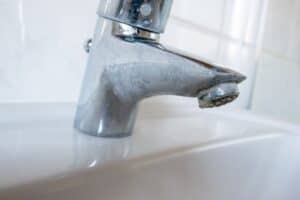Residents of five municipalities dodged a weekend without water after a total power supply failure threatened to cause a shortage.

Residents of five municipalities dodged a weekend without water after a total power supply failure threatened to cause a shortage.
Rand Water spokesperson Makenosi Maroo confirmed that power to the Mapleton booster station was restored and Rand Water had started pumping water again.
On Wednesday, there was a decline in Rand Water’s reservoirs following a total power supply failure at the Mapleton booster station supplying the City of Ekurhuleni, the City of Tshwane, Lesedi municipality, Govan Mbeki local municipality and Thembisile Hani local municipality.
Use water ‘cautiously’
City of Tshwane’s utilities MMC Daryl Johnston urged residents to use water cautiously and reminded residents about the level 2 water restrictions currently in place. Maskam Water chief executive Gerhard Cronje said it was no secret that South Africa was struggling with issues relating to the water supply.
“The metros cannot keep up with the demand and are plagued with ageing infrastructure, pollution of water sources and power challenges from Eskom. This has resulted in water restrictions being enforced,” he said.
ALSO READ: Floods: Limpopo elderly man and family spent five days between moving waters
Cronje said this was only the beginning of what was still to come. “Projections for 2030 expect the demand for water in South Africa to rise by 17.7 billion m³, while water supply is projected to amount to 15 billion m³, representing a 17% gap between water supply and demand (or a 2.7 to 3.8 billion m³,” he explained. Cronje added the problem was infrastructure decay.
“If the government used the annual budget to repair the infrastructure, it would take at least 10 years to complete,” he said. Cronje said SA had to implement alternatives to secure SA’s water future. “One such alternative is onsite water treatment and reuse.
Solution
“It is a more permanent solution because it is sustainable. It is independent of failing water infrastructure and droughts, increases water resilience and saves the customer money in purchasing water and paying for sewage,” he said.
Cronje said 98% of wastewater treatment works in South Africa do not comply with Green Drop. “Treating your wastewater on-site reduces the pollution of water courses. It is not a new concept, but one that is often overlooked due to a lack of education and understanding and often substituted by other options such as boreholes, which could run dry in a matter of months, rain harvesting that is heavily reliant on rainfall, or desalination which is costly,” he said.
Cronje said the water industry has been warning consumers for years to expect problems.
Support Local Journalism
Add The Citizen as a Preferred Source on Google and follow us on Google News to see more of our trusted reporting in Google News and Top Stories.






